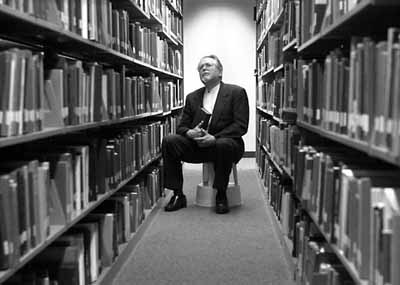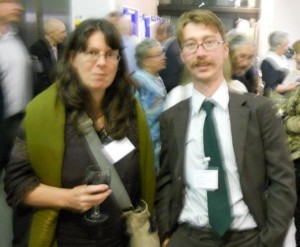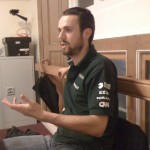Non-religion
The two concepts of non-religion and secularity are intended to summarise all positions which are necessarily defined in reference to religion but which are considered to be other than religious. […This encapsulates] a range of perspectives and experiences, including the atheistic, agnostic, religiously indifferent or areligious, as well as some forms or aspects of secularism, humanism and, indeed, religion itself. (Lee 2009)
It is fast becoming a tradition in ‘nonreligion’ research to acknowledge that Colin Campbell’s seminal call in Toward a Sociology of Irreligion (1971) for a widespread sociological analysis’ of ‘nonreligion’ had until very recently been ignored (Bullivant and Lee 2012). Although there has been a steady stream of output on secularisation, and more recently on atheism, these publications rarely dealt with ‘nonreligion’ as it is ‘actually lived, expressed, or experienced […]in the here and now’ (Zuckerman 2010, viii). One scholar who has been leading the way in theorising and empirically populating this emerging field is Lois Lee, the founding director of the Nonreligion and Secularity Research Network, who joins Chris and Ethan in this podcast, recorded in May 2012 in Edinburgh.
Dr Lois Lee is Associate Lecturer in Religious Studies and Sociology at the University of Kent. Her work deals with theories of thought and action in differentiated and highly mediated societies, and her empirical research has focused on British nonreligious and secularist cultures. She is recently completed her doctoral thesis at the University of Cambridge and is currently developing the thesis into a monograph, provisionally titled, Separating Sociologies: Religion, Nonreligion and Secularity in Society and Social Research. She was guest co-editor of a special issue of Journal of Contemporary Religion, entitled ’Nonreligion and Secularity: New Empirical Perspectives’, with Stephen Bullivant (January 2012). She has publications in (or forthcoming in) the Annual Review of Sociology of Religion, Journal of Contemporary Religion, Studies in Ethnicity & Nationalism and Critique and Humanism, and will contribute to the forthcoming Oxford Handbook to Atheism (2013). Lois is founding director of the NSRN, the co-editor of its website, co-editor of the journal Secularism and Nonreligion (NSRN and ISSSC), and features editor for the LSE-based journal, Studies in Ethnicity & Nationalism (Wiley-Blackwell). She lectures and teaches the study of religion (and nonreligion), sociology of religion, social theory of modernity, introduction to sociology, and qualitative social research methods.
Lee’s basic definition of ‘nonreligion’ is ‘anything which is primarily defined by a relationship of difference to religion’ (Lee 2012, 131), yet related to this relatively simple definition are a host of conceptual, methodological and terminological issues. At an individual level, when they are given discrete options, many otherwise ‘non-religious’ individuals will inevitably self-categorise themselves using ‘religious’ labels (for a variety of different reasons, see Day 2011; Edgell, Gerteis, and Hartmann 2006). However, the labels that individuals utilise are rarely as important as the contexts in which they use them, their motivations for doing so, and the meanings attached to them. When permitted to select multiple (non-)religious identity terms, many welcome the opportunity to articulate multiple identities. Different identities may be enacted in different contexts (Cotter 2011b), and a superficial non-religiosity can mask beliefs and practices sometimes termed ‘spiritual’ by the individual in question. To complicate matters further, people are apt to utilise (non-)religious terminology in situations where their sacred values are (un)consciously called into question, yet for much of the time these sacred values and the associated terminology ‘lie dormant and, as such, invisible’ (Knott 2013).
Institutionally, there are many organisations which can be explicitly labelled as ‘non-religious’, each exhibiting a collection of distinct-yet-interrelated attitudes and emphases (see Pasquale 2010, 66–69; Cimino and Smith 2007, 420–422; Budd 1977, 266), and in which much of what actually happens on the ground is arguably mundane and/or secular. However, the non-religious tend not to join specifically non-religious groups (Bullivant 2008, 364), and it is therefore unclear how representative these groups are likely to be. Other public institutions - such as a museum, a hospital chaplaincy, or a ‘religious’ NGO - can be similarly ambiguous. ‘Religious’ institutions are utilised by non-religious people for a variety of reasons (Day 2011), and if we attend to the materiality and embodiment of public and private social interactions it becomes clear that a sound, a smell, or the mere presence of another person, can change the sacred, profane or mundane nature of (non-)religious and secular experiences.
The ambiguities described in the previous paragraphs suggest that scholars attempting to engage with non-religion face particular terminological and methodological challenges. Terminologically, it is self-evident that the categories of ‘religion’ and ‘non-religion’ are ‘semantically parasitic categories’ (Fitzgerald 2007, 54). This relationship has led to a situation where the prevalent terminology used to refer to the non-religious in the social science of religion has often been ambiguous, imprecise, and even biased and derogatory (Cragun and Hammer 2011; Cotter 2011b; Pasquale 2007; Lee 2012). Methodologically, there is the attendant risk of constructing non-religion simply through the act of study. By asking questions specifically relating to (non-)religion, studies can exclude the possibility of (non-)religious indifference, whilst religion concurrently ‘serves as a “language” in which many people who may no longer be associated with any religious organisations still choose to express their strongest fears, sorrows, aspirations, joys and wishes’ (Beckford 1999, 25). The researcher must therefore be aware both of the limitations of the narrative interview, and of the different meanings attached to terms in different discourses (Stringer 2013). All of these issues and more are complicated by problems of locating potential research data for all but the most explicit forms of non-religion and by emergent problems in the assessment of religion-equivalent non-religious practices, and, indeed, the appropriateness of doing so (Cotter 2011a; Cotter, Aechtner, and Quack 2012). This interview with Lois Lee addresses these issues and more, and provides a valuable reflexive discussion on what ‘nonreligion’ is, and why we might be interested in studying it from a Religious Studies perspective.
The following quotation from Frank Pasquale serves as a suitable point of conclusion:
The closer people’s worldviews are probed – even among self-described secular or nonreligious individuals – the more difficult it is to neatly place many into the major categories that frame Western discourse on “theism” and “atheism” or “religion” or “irreligion” (2010, 63)
As we are all aware, study of ‘religion’ (and by definition, ‘nonreligion’) generally occurs within a Western, Christianised context which tends to assume a position of normative religiosity, and reify an academically constructed dichotomy between ‘religion’ and ‘nonreligion’. Whilst this interview (and many ongoing studies) focuses on one side of the ‘religion’-’nonreligion’ dichotomy, ultimately it can be seen as an attempt to ‘argue for the currently unfashionable side of [a] polar opposition, […] to unsettle the assumption that any polarity can properly describe a complex reality’ (Silverman 2007, 144).
Listener's may also be interested in our previous interview with Callum Brown on Historical Approaches to Losing Religion, and with Linda Woodhead on the Secularisation Thesis.
References:
- Beckford, James A. 1999. “The Politics of Defining Religion in Secular Society: From a Taken for Granted Institution to a Contested Resource.” In The Pragmatics of Defining Religion: Contexts, Concepts and Contests, ed. Jan G. Platvoet and Arie L. Molendijk, 23–40. Leiden: Brill.
- Budd, Susan. 1977. Varieties of Unbelief: Atheists and Agnostics in English Society 1850-1960. London: Heinemann.
- Bullivant, Stephen. 2008. “Research Note: Sociology and the Study of Atheism.” Journal of Contemporary Religion 23 (3): 363–368.
- Bullivant, Stephen, and Lois Lee. 2012. “Interdisciplinary Studies of Non-religion and Secularity: The State of the Union.” Journal of Contemporary Religion 27 (1).
- Campbell, Colin. 1971. Toward a Sociology of Irreligion. London: Macmillan.
- Cimino, Richard, and Christopher Smith. 2007. “Secular Humanism and Atheism Beyond Progressive Secularism.” Sociology of Religion 68 (4): 407–424.
- Cotter, Christopher R. 2011a. Qualitative Methods Workshop (NSRN Methods for Nonreligion and Secularity Series). NSRN Events Report Series [online]. NSRN. http://www.nsrn.net/events/events-reports.
- ———. 2011b. “Toward a Typology of ‘Nonreligion’: A Qualitative Analysis of Everyday Narratives of Scottish University Students”. Unpublished MSc by Research Dissertation, Edinburgh: University of Edinburgh.
- Cotter, Christopher R., Rebecca Aechtner, and Johannes Quack. 2012. Non-Religiosity, Identity, and Ritual Panel Session. Hungarian Culture Foundation, Budapest, Hungary: NSRN. http://nsrn.net/1523-2/.
- Cragun, R., and J.H. Hammer. 2011. “‘One Person’s Apostate Is Another Person’s Convert’: What Terminology Tells Us About Pro-religious Hegemony in the Sociology of Religion.” Humanity and Society 35: 159–175.
- Day, Abby. 2011. Believing in Belonging: Belief and Social Identity in the Modern World. Oxford: Oxford University Press.
- Edgell, Penny, Joseph Gerteis, and Douglas Hartmann. 2006. “Atheists as ‘Other’: Moral Boundaries and Cultural Membership in American Society.” American Sociological Review 71 (2) (April): 211–234.
- Fitzgerald, Timothy. 2007. Discourse on Civility and Barbarity: A Critical History of Religion and Related Categories. New York and Oxford: Oxford University Press.
- Knott, Kim. 2013. “The Secular Sacred: In-between or Both/and?” In Social Identities Between the Sacred and the Secular, ed. Abby Day, Giselle Vincett, and Christopher R. Cotter. Surrey: Ashgate.
- Lee, Lois. 2009. “NSRN Website - About”. Nonreligion and Secularity Research Network. http://www.nsrn.co.uk/About.html. (Accessed March 2011)
- ———. 2012. “Research Note: Talking About a Revolution: Terminology for the New Field of Non-religion Studies.” Journal of Contemporary Religion 27 (1).
- Pasquale, Frank L. 2007. “Unbelief and Irreligion, Empirical Study and Neglect Of.” In The New Encyclopedia of Unbelief, ed. Tom Flynn, 760–766. Amherst, NY: Prometheus.
- ———. 2010. “A Portrait of Secular Group Affiliates.” In Atheism and Secularity - Volume 1: Issues, Concepts and Definitions, ed. Phil Zuckerman, 43–87. Santa Barbara: Praeger.
- Silverman, David. 2007. A Very Short, Fairly Interesting and Reasonably Cheap Book About Qualitative Research. Los Angeles, Calif: SAGE.
- Stringer, Martin D. 2013. “The Sounds of Silence: Searching for the Religious in Everyday Discourse.” In Social Identities Between the Sacred and the Secular, ed. Abby Day, Giselle Vincett, and Christopher R. Cotter. Surrey: Ashgate.
- Zuckerman, Phil. 2010. “Introduction.” In Atheism and Secularity - Volume 1: Issues, Concepts and Definitions, ed. Phil Zuckerman, vii–xii. Santa Barbara: Praeger.
American Millennialism
Why is it that millennialism—the belief in an immanent return of Christ to Earth—has had such a particular fascination for the American people? Millennial prophecy is often analysed with relation to violence and minority "cults", but it is also infused into everyday discourse, in the rhetoric of politicians and the "rolling prophecy" of talk radio hosts. In this wide-ranging interview, David asks Gordon Melton about the history and reasons behind the fascination. Discussion moves from the Millerites and the Great Disappointment of 1844, the Jehovah's Witnesses and Mormons in the late 19th and early 20th centuries, to the Branch Davidians at Waco, Texas. We discuss the strategies used by these groups when their prophecies fail, which often involves a shift from premillennialism to postmillennialism.
"When you look at all the groups who have given prophecies at various times, they have one thing in common: they all failed. For most of us, this is a history of successive groups with failed prophecies. But for the groups themselves, prophecy never fails..."
Finally, we come right up to the present day, talking about Harold Camping and other Christian millennialism, and the 2012 narrative so prevalent today in popular spirituality and the media. While these share similarities with 19th century millennialism, but considerable differences also, in particular in relation to media. In closing Melton prophecies about the future of millennialism; as the population continues to grow, and there continues to be a need to fill news shows, then prophecy will continue to fail.
(By the way, the chap who's name we couldn't remember is David Spangler.)
Wouter Hanegraaff on Western Esotericism
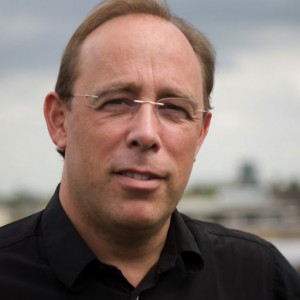 In this interview, recorded at the EASR Annual Conference at Södertörn University, Professor Wouter Hanegraaff tells us about what he dubs “the biggest blank spaces of neglected territories in the study of religion”, namely Western esotericism. He tells how he first came over the German Folklorist Will-Erich Peuckert’s book Pansophie (1936) and discovered a group of renaissance thinkers he had never heard of, but whose work evidently had influenced western culture in a profound way. It soon came to show that scholars in the academy wasn’t eager to go into it or take it seriously. Hanegraaf gives us insight to how this developed from being neglected sources of Western thought to an established field of study. He also goes into the question of definition; challenges and approaches within the study of Western esotericism; how the study of Western esotericism relates to the study of religion as a whole; the (non-)universality of esotericism; and additionally his blog Creative Reading and the accessibility of academic knowledge.
In this interview, recorded at the EASR Annual Conference at Södertörn University, Professor Wouter Hanegraaff tells us about what he dubs “the biggest blank spaces of neglected territories in the study of religion”, namely Western esotericism. He tells how he first came over the German Folklorist Will-Erich Peuckert’s book Pansophie (1936) and discovered a group of renaissance thinkers he had never heard of, but whose work evidently had influenced western culture in a profound way. It soon came to show that scholars in the academy wasn’t eager to go into it or take it seriously. Hanegraaf gives us insight to how this developed from being neglected sources of Western thought to an established field of study. He also goes into the question of definition; challenges and approaches within the study of Western esotericism; how the study of Western esotericism relates to the study of religion as a whole; the (non-)universality of esotericism; and additionally his blog Creative Reading and the accessibility of academic knowledge.
You can also download this interview, and subscribe to receive our weekly podcast, on iTunes. And if you enjoyed it, please take a moment to rate us. And apologies for the background noise at the end of the interview. Wouter Hanegraaff is a professor of History of Hermetic Philosophy and Related Currents at the University of Amsterdam. He has written extensively on many topics among them New Age, Gnosticism, Magic and last but not at least Western Esotericisim. He is currently president of the European Society for the Study of Western Esotericism (ESSWE and member on the editorial board of Aries(Brill), Numen (Brill), Religion Compass and Esoterica. His latest book Esotericism and the Academy: Rejected Knowledge in Western Culture (Cambridge University Press, 2012) was subject for a panel-discussion at the EASR Annual Conference. Those with a new-founded interest in the subject can also keep an eye out for his forthcoming book Western Esotericism: A Guide for the Perplexed (Bloomsbury, 2013). Full CV and list of publications on Prf. Wouter Hanegraaff’s webpage. Additionally, the article by Egil Asprem mentioned during the interview can be bought or accessed here.

This is also the first interview conducted by our new sub-editor, Knut Melvær. Knut is a Ph.D. candidate at the Department of Archaeology, History, Cultural Studies and Religion, University of Bergen (Norway). He is currently researching ‘spirituality’ as a folk-category and cultural domain in Norway 1930–2010. His background and particular interests are in theories of religion, new religious movements, Ainu- and Japanese religion as well as methodologies in religious studies. He is a review-editor of Aura, and currently co-editing a special issue of DIN on the topic of ‘Gods’ (December 2012). Knut has a personal website and also an infrequently updated academia.edu profile.
Druidry and the Definition of Religion
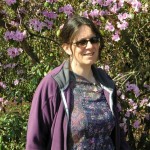 Contemporary Druidry often presents itself as the native spirituality of the British Isles. However, there is not one form of Druidry and there are also significant numbers of Christian and atheist Druids as well as those that combine Druidry with Wiccan or other perspectives and practices. From international organisations to local ‘groves’, there are diverse types of Druid groups, as well as lone practitioners. Chris and David are joined this week by Dr Suzanne Owen to talk in-depth about this fascinating subject, and its implications for wider understandings of the category 'religion'.
Contemporary Druidry often presents itself as the native spirituality of the British Isles. However, there is not one form of Druidry and there are also significant numbers of Christian and atheist Druids as well as those that combine Druidry with Wiccan or other perspectives and practices. From international organisations to local ‘groves’, there are diverse types of Druid groups, as well as lone practitioners. Chris and David are joined this week by Dr Suzanne Owen to talk in-depth about this fascinating subject, and its implications for wider understandings of the category 'religion'.
You can also download this interview, and subscribe to receive our weekly podcast, on Redefinition of the eclectic group identity.
The modern roots of Druidry, detailed in Ronald Hutton’s Blood and Mistletoe: the History of the Druids in Britain (Yale UP, 2009), began largely with the seventeenth and eighteenth century antiquarians who formed various societies and fraternities, some of which still exist. Many features of contemporary Druidry originated with Edward Williams (1747-1826), who took the bardic name Iolo Morganwg and founded the Gorsedd (gathering of Bards). It is difficult to determine a common element between the various groups, though many contemporary Druids recognise awen, the ‘inspiration’ of bards and Druids, and have an interest in trees and tree lore. To find out more, have a listen to the podcast and/or check out some of Suzanne's publications.
Suzanne Owen lectures at Leeds Trinity University College, UK, in all aspects of Religious Studies (especially method and theory and south Asian traditions) and researches indigeneity and contemporary indigenous traditions, particularly in North America. She is currently co-chair of the Indigenous Religious Traditions Group for the American Academy of Religion. Her PhD from the University of Edinburgh focussed on the sharing of Native American ceremonies and included fieldwork among Mi'kmaq in Newfoundland. More recently, she has been researching Druidry and has given papers on this topic in relation to indigeneity or religion at several international conferences, and written the following piece for the Bulletin for the Study of Religion, which listeners should be interested in: Religion / Not Religion - A Discourse Analysis.
This interview was recorded at the University of Edinburgh in April 2012, and we are very grateful for Suzanne's help in compiling this post and, of course, for a great interview.
The Sacred
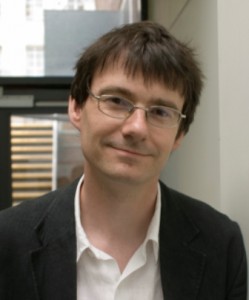 Religion and the Sacred, the Sacred and religion. Two words that seemingly go together like hand in glove but just how accurate is that? When we talk about religion it's very hard not to talk about the Sacred but when we talk about the Sacred does this mean we have to talk about religion? What does the Sacred even mean? This introduction began with "Sacred" but it may well be more appropriate to write "sacred". Whether capitalised or not, the sacred is a predominant topic in many forms of discourse and not all these are necessarily religious in nature.
Religion and the Sacred, the Sacred and religion. Two words that seemingly go together like hand in glove but just how accurate is that? When we talk about religion it's very hard not to talk about the Sacred but when we talk about the Sacred does this mean we have to talk about religion? What does the Sacred even mean? This introduction began with "Sacred" but it may well be more appropriate to write "sacred". Whether capitalised or not, the sacred is a predominant topic in many forms of discourse and not all these are necessarily religious in nature.
This week we discuss the sacred and all its connotations with Gordon Lynch. The sacred is not, it seems, just a religion-only category and many aspects of modern secular societies are pervaded with such a notion. But if the sacred isn't a religion only category where does that leave religion? Should there be departments of Religious Studies at all, or should we be replacing them with Sacred Studies? We discuss the potentially far reaching implications that a shift in focus from Religion to the Sacred can have on academia.
You can also download this interview, and subscribe to our weekly podcast, on Secular Sacreds and the Sacred Secular.
Gordon Lynch is the Michael Ramsey Professor of Modern Theology at the University of Kent where he teaches on the sacred in modern Western Society. Professor Lynch has published a number of works including an edited volume with Jolyon Mitchell and has recently published two books on the sacred, The Sacred in the Modern World and On the Sacred. If you'd like to know more about Professor Lynch's work on the sacred you can find out more information on his blog as well as access some of his own learning resources.
Rudolf Otto
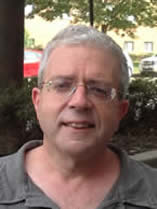 Rudolf Otto was a highly influential figure in the history of Religious Studies, but whether that influence was for good or not is a debatable issue. His ideas about the sui generis nature of the religious experience and of an irreductible numinous or sacred foreshadow the work of scholars such as Eliade, but proved highly divisive for scholars and practitioners alike.
Rudolf Otto was a highly influential figure in the history of Religious Studies, but whether that influence was for good or not is a debatable issue. His ideas about the sui generis nature of the religious experience and of an irreductible numinous or sacred foreshadow the work of scholars such as Eliade, but proved highly divisive for scholars and practitioners alike.
In this interview with Jonathan, Robert Orsi talks us through who Otto was, and why his ideas proved controversial. They then discuss whether scholars should still be paying attention to Otto - do his ideas still matter today?
You can also download this interview, and subscribe to our weekly podcast, on iTunes. And if you enjoyed it, please take a moment to rate us.
Robert Orsi is the first holder of the Grace Craddock Nagle Chair in Catholic Studies. Before coming to Northwestern, he taught at Fordham University at Lincoln Center from 1981 to 1988; Indiana University from 1988 to 2001; and Harvard Divinity School and Harvard University from 2001 to 2007, where he was Chair of the Committee on the Study of Religion in the Faculty of Arts and Sciences (2003-2007). In 2002-2003, he was president of the American Academy of Religion. Professor Orsi studies America religious history and contemporary practice; American Catholicism in both historical and ethnographic perspective; and he is widely recognized also for his work on theory and method for the study of religion.
In 2004 Robert Orsi published Between Heaven and Earth: The Religious Worlds People Make and the Scholars Who Study Them which received an Award for Excellence in the Study of Religion from the American Academy of Religion and was one of Choice’s Outstanding Academic Titles for 2005. More recently he published The Cambridge Companion to Religious Studies.
Brian Victoria on Zen Buddhist Terrorism and Holy War
"One must note the feature of religion that keeps it on the front page and on prime time: it kills." Martin Marty
 An uncritical reading of this statement from the eminent scholar in the mainstream media, and should not discourage scholars from taking seriously the issues that it raises. Is there something particular about religion which makes it a more potent 'violence enabling mechanism' than other factors? Are some religions more likely to inspire violence than others? And why should scholars even care? In this interview, Chris discusses these issues and more with Professor Brian Victoria, who, in addition to his scholarly credentials, is a fully ordained Zen Buddhist priest.
An uncritical reading of this statement from the eminent scholar in the mainstream media, and should not discourage scholars from taking seriously the issues that it raises. Is there something particular about religion which makes it a more potent 'violence enabling mechanism' than other factors? Are some religions more likely to inspire violence than others? And why should scholars even care? In this interview, Chris discusses these issues and more with Professor Brian Victoria, who, in addition to his scholarly credentials, is a fully ordained Zen Buddhist priest.
You can also download this interview, and subscribe to receive our weekly podcast, on iTunes. And if you enjoyed it, please take a moment to rate us.
The interview proceeds in two sections. First of all, Professor Victoria delineates his understanding of Holy War, which are expanded upon more fully in his freely available article Holy War: Toward a Holistic Understanding. Discussion flows from Karl Jaspers' idea of the Axial Age and a movement from 'tribal' to 'universalistic' religions, through to the potential connections between religion, nationalism, and threat perception, with potentially controversial examples from contemporary conflicts in Iraq, Israel and Palestine being cited along the way. The interview shifts its focus to the specific example of violence associated with (Japanese) Zen Buddhism, providing a stark contrast to its (admittedly positive) stereotypical reputation. How could the precept 'there is no self' be connected to violent acts? And what about the widely known idea of karma? You'll have to listen to find out...
We have also published a response essay to this interview entitled Religion, Violence, and Cognition, by our very own Kevin Whitesides. Listener's might also be interested in our previous interview with Jolyon Mitchell on Religion, Violence and the Media, and Zoe Alderton's response to this - Anzac and Awe: Religion, Violence, and the Media in Australia.
Dr. Brian Victoria is Professor of Japanese Studies at Antioch University where he has been Program Director of Japan and Its Buddhist Traditions since 2005. He trained at the Sôtô Zen monastery of Eiheiji and is a fully ordained priest in that sect. He is also the author and co-author of numerous books and articles on Zen, including “Zen Master Dôgen“, “Zen at War” and “Zen War Stories”. The Japanese language edition of “Zen at War” served as a catalyst for Myôshinji, the largest branch of the Rinzai Zen sect, to publicly apologize for its role in support of Japanese militarism during WWII. During the program in Japan, Brian teaches Development and Doctrine of Buddhism. Together with other program instructors, he also supervises a select number of student field research projects.
What is the Public Benefit of the Study of Religion?

This year's BASR annual conference at the University of Winchester included a panel on the ‘Public benefit in the study of religion’. The panel was organised by BASR Hon. Secretary, Bettina Schmidt, and Chair of BSA-SOCREL, Abby Day, representing the two main professional organisations representing the UK’s scholars of religion. The other speakers taking part were Eileen Barker of INFORM, Tim Jensen and Douglas Davies. Given that the Religious Studies Project has a manifesto of disseminating contemporary RS research to the public, we felt that we wanted to talk to scholars about this question. This edited podcast was the result.
Does the public benefit from the social-scientific study of religion? Should it? How do we demonstrate benefit, measure it, communicate it? What are the practical and theoretical issues surrounding the idea of how the study of religion can operate in the, or perhaps as a, public good? For that matter, what do we mean by ‘public’ or ‘benefit’?
This question relates to our daily practice as researchers when asking for funding or having to present the outcomes of our research. Research Councils ask every applicant to explain the possible impact of a research project and in the coming years we will have to demonstrate as part of the Research Excellence Framework (REF) the wider impact of our research. But are discussions of this type necessary in order to understand and perhaps improve the relevance to the public of our research - and discipline - or are we simply looking for justifications to be able to continue research which has little public benefit?
You can also download this interview, and subscribe to our weekly podcast, on iTunes. And if you enjoyed it, please take a moment to rate us.
Book Reviews
When we were contacted earlier this year by a couple of publishers asking if we'd be interested in reviewing books, we immediately thought "Yes - but how?" We're not a journal, and didn't want to do the traditional journal review, but we do love books, and especially talking about them. So when Chris suggested we could combine several reviews into a roundtable format, we thought we had to give it a try.
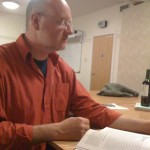 For this first try at a new format, we thought it best to invite a few trusty friends. After many attempts, we finally managed to get David Wilson to a recording. He reviewed Vernacular Religion in Everyday Life: Expressions of Belief, edited by Marion Bowman and Ülo Valk (2012: Equinox). He calls it "a valuable contribution to the task of increasing scholarly awareness of the need to attend to the variety of local practices that are accepted as ‘religious’ but which have tended to be overlooked when investigating religion in terms of ‘world’ religions". It doesn't offer easy answers, however, and "like many of the dialogues it explores, this collection is courteously, but deliberately, disruptive". Read his full review here.
For this first try at a new format, we thought it best to invite a few trusty friends. After many attempts, we finally managed to get David Wilson to a recording. He reviewed Vernacular Religion in Everyday Life: Expressions of Belief, edited by Marion Bowman and Ülo Valk (2012: Equinox). He calls it "a valuable contribution to the task of increasing scholarly awareness of the need to attend to the variety of local practices that are accepted as ‘religious’ but which have tended to be overlooked when investigating religion in terms of ‘world’ religions". It doesn't offer easy answers, however, and "like many of the dialogues it explores, this collection is courteously, but deliberately, disruptive". Read his full review here.
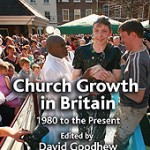 Chris reviewed Church Growth in Britain: 1980 to the Present, edited by David Goodhew. The book purports to 'provide a forceful critique of the notion of secularization' "by focusing upon the attendance and membership of Christian churches - the very thing which formed the empirical basis of the secularization thesis". While he has issues with the volume's theological imperative and uncritical acceptance of the secularisation thesis, Chris pointed out that it demonstrates "the potential for scholarly theories to, in some cases, become self-fulfilling prophesies when released into the real world". You can read his full review here.
Chris reviewed Church Growth in Britain: 1980 to the Present, edited by David Goodhew. The book purports to 'provide a forceful critique of the notion of secularization' "by focusing upon the attendance and membership of Christian churches - the very thing which formed the empirical basis of the secularization thesis". While he has issues with the volume's theological imperative and uncritical acceptance of the secularisation thesis, Chris pointed out that it demonstrates "the potential for scholarly theories to, in some cases, become self-fulfilling prophesies when released into the real world". You can read his full review here.
Jonathan - philosophical as always - asked to review Naturalism and Our Knowledge of Reality: Testing Religious Truth-claims by R. Scott Smith (Ashgate 2012). He was less than impressed. As an introduction to naturalism, the philosophical position that there are no non-empirical entities, it is unsatisfactory, because it is "a thinly veiled Christian apologetic dressed in a philosophical discussion about naturalism". His full review can be read here.
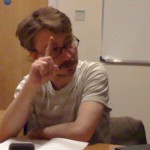 Finally, I reviewed Craig Martin's A Critical Introduction to the Study of Religion (Equinox, 2012). It is essentially an introduction to critical theory (a “socio-functional” approach which seeks to expose the assumptions which a given group takes for granted) as applied to the study of religion, and aimed at an undergraduate level. “Religion” is a powerful tool in the naturalisation of socio-epistemological norms, of course, but the book is most interesting pedagogically, in offering "a potential alternative Introduction to Religious Studies course than the “here are the world religions” approach that concerns many of us". You can read my review here.
Finally, I reviewed Craig Martin's A Critical Introduction to the Study of Religion (Equinox, 2012). It is essentially an introduction to critical theory (a “socio-functional” approach which seeks to expose the assumptions which a given group takes for granted) as applied to the study of religion, and aimed at an undergraduate level. “Religion” is a powerful tool in the naturalisation of socio-epistemological norms, of course, but the book is most interesting pedagogically, in offering "a potential alternative Introduction to Religious Studies course than the “here are the world religions” approach that concerns many of us". You can read my review here.
This has been enjoyable, but a lot of work. Please let us know if you found it useful and/or entertaining. We're open to hearing about other books you'd like us to review, or if you'd like to take part in a future recording (for example, at the next BASR conference...). And we are enormously grateful to Ashgate and Equinox for providing us with books to review.
Astrology
If statistics are to be believed, close to 100% of people in the UK know their astrological sun-sign. But what is astrology, exactly? Is it merely a "survival" from the medieval worldview, and what is its relationship to modernity and scientific thought? Most pertinently, does it have something profound to tell us about the nature of popular belief, or vernacular religion? Nicholas Campion tells David why it does in this fascinating interview.
You can also download this interview, and subscribe to our weekly podcast, on iTunes. And if you enjoyed it, please take a moment to rate us.
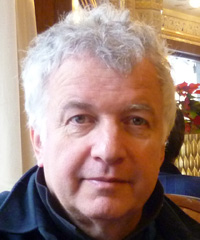 Nicholas Campion is Senior Lecturer in Archaeology and Anthropology, and Director of the Sophia Centre for the Study of Cosmology in Culture. His research interests include the nature of belief, the history and contemporary culture of astrology and astronomy, magic, pagan and New Age beliefs and practices, millenarian and apocalyptic ideas, and the sociology of new religious movements. This calls for a multi-disciplinary approach and, before joining Lampeter University in 2007, he was, in turn, Senior Lecturer in the Study of Religions and Senior Lecturer in History at Bath Spa University. He is a member of the international executive committee of the conferences on the Inspiration of Astronomical Phenomena (INSAP), is editor of Culture and Cosmos, a Journal of the History of Astrology and Cultural Astronomy and is in the editorial boards of Correlation, the Journal of Research in Astrology and Archaeoastronomy, the Journal of Astronomy in Culture. His most recent publications include Astrology and Cosmology in the World’s Religions (New York University Press, 2012), Astrology and Popular Religion: Prophecy, Cosmology and the New Age Movement (Ashgate 2012), and the two-volume History of Western Astrology (Continuum 2009).
Nicholas Campion is Senior Lecturer in Archaeology and Anthropology, and Director of the Sophia Centre for the Study of Cosmology in Culture. His research interests include the nature of belief, the history and contemporary culture of astrology and astronomy, magic, pagan and New Age beliefs and practices, millenarian and apocalyptic ideas, and the sociology of new religious movements. This calls for a multi-disciplinary approach and, before joining Lampeter University in 2007, he was, in turn, Senior Lecturer in the Study of Religions and Senior Lecturer in History at Bath Spa University. He is a member of the international executive committee of the conferences on the Inspiration of Astronomical Phenomena (INSAP), is editor of Culture and Cosmos, a Journal of the History of Astrology and Cultural Astronomy and is in the editorial boards of Correlation, the Journal of Research in Astrology and Archaeoastronomy, the Journal of Astronomy in Culture. His most recent publications include Astrology and Cosmology in the World’s Religions (New York University Press, 2012), Astrology and Popular Religion: Prophecy, Cosmology and the New Age Movement (Ashgate 2012), and the two-volume History of Western Astrology (Continuum 2009).

